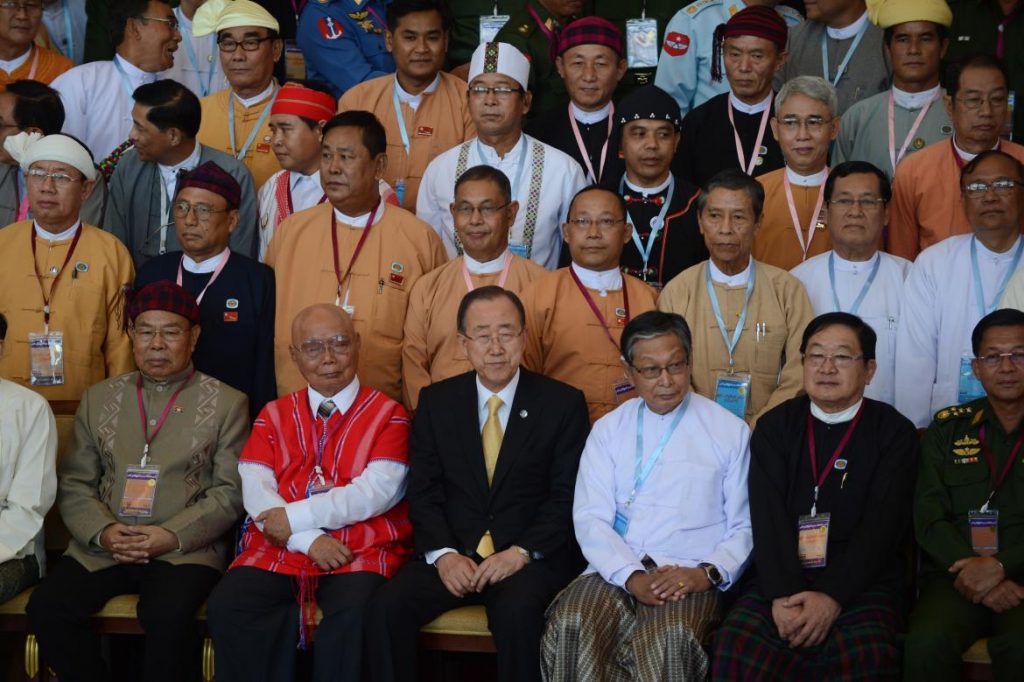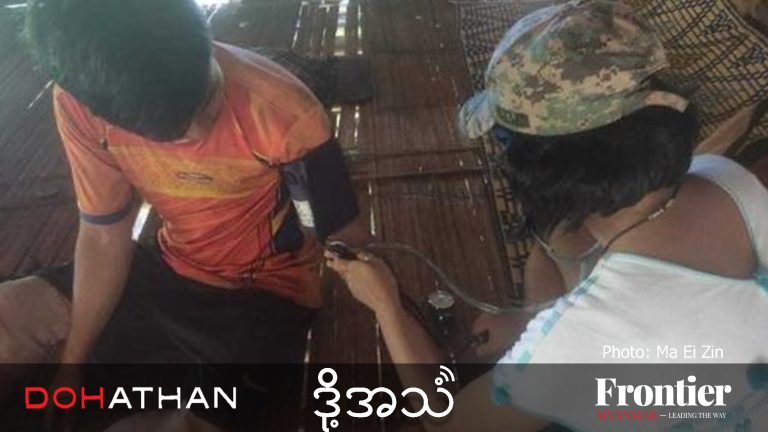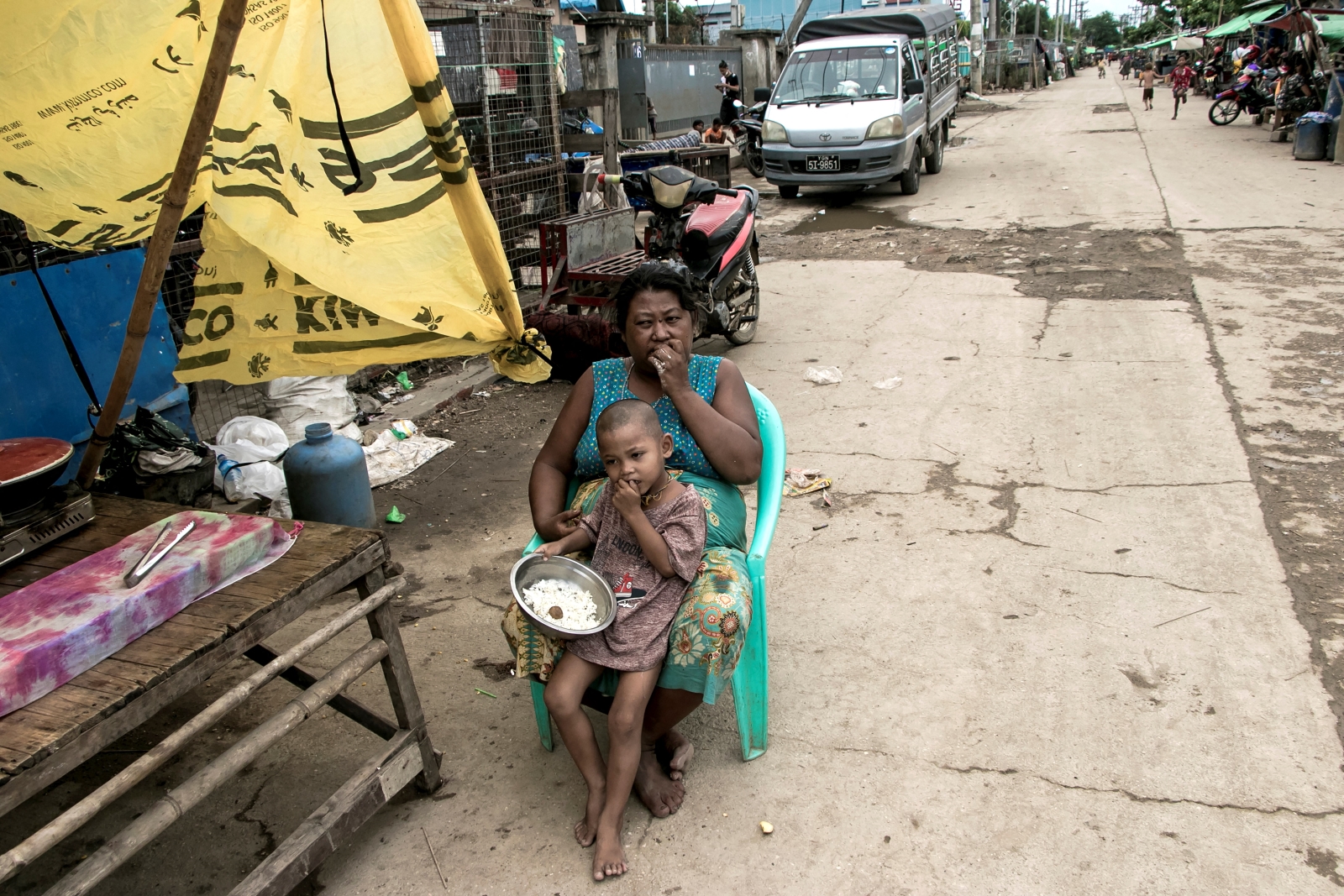The challenges to advancing the peace process should not be underestimated and both the government and armed groups will need to rethink their approach, says the International Crisis Group.
The challenges include an inflexible timeframe for future Panglong-21 conferences, changes that have affected the capacity of the peace secretariat, continuing conflict and convincing most armed groups to sign the Nationwide Ceasefire Agreement, the Brussels-based think-tank says.
The term of the current government may be the best chance for a negotiated political settlement to nearly 70 years of armed conflict, the ICG says in the introduction to Myanmar’s Peace Process: Getting to a Political Dialogue, released on October 19.
It says that while both the current and previous governments made the peace process a priority, State Counsellor Daw Aung San Suu Kyi and her administration have a number of advantages.
They include her domestic political stature, the National League for Democracy’s huge election mandate and strong international backing, including qualified support from China.
Support more independent journalism like this. Sign up to be a Frontier member.
A combination of these factors contributed to the participation of nearly all armed groups in the Union Peace Conference – 21st Century Panglong that began on August 31, something the previous government had been unable to achieve, the report said.
“But if real progress is to be made, both the government and armed groups needs to adjust their approach so they can start a substantive political dialogue as soon as possible,” it said.
The ICG said the Panglong-21 conference encapsulated both the significant advantages Aung San Suu Kyi had for forging peace and the enormous challenges she must surmount.
“The broad attendance of armed groups gives hope of a more inclusive, successful peace process, but it would be a mistake to think that the fundamental problems have become easier to solve,” it said.
“It will take difficult negotiations to convince most groups to sign the NCA, a sine qua non the government and military have each expressed.”
The ICG report raised concern about the new timeframe and “architecture” for the process and said the government should ensure greater involvement by civil society, women and youth.
It said the announced scheduling of Panglong-21 conferences every six months, with the next possibly timed to symbolically coincide with Union Day on February 12, “imposes an artificially rigid timeframe that limits the flexibility required to overcome obstacles”.
The ICG said changes to the peace secretariat under the NLD government had left it with limited capacity.
The Myanmar Peace Center was replaced in July by a National Reconciliation and Peace Centre headed by Aung San Suu Kyi in her capacity as State Counsellor. The centre includes a Peace Commission, headed by her personal doctor, Dr Tin Myo Win, the chief peace negotiator.
“The NRPC, tasked with the day-to-day work, has only a handful of staff, compared with 120 under its predecessor. Because Suu Kyi decided to establish it as a fully government entity under her office (its predecessor was semi-independent, at least administratively), it must follow civil service staffing and budgeting regulations. Scaling up will take considerable time and it will be difficult to draw on outside expertise,” the ICG said. “There is thus a worrying lack of institutional capacity to support peace-process mechanics, and the armed groups also have little support capacity,” it said.
The ICG says armed groups need to recognise that although they have legitimate concerns about the process, they are unlikely to get a better chance to achieve a negotiated political settlement.
“Aung San Suu Kyi has expressed firm support for a federal, democratic solution and has unparalleled political authority to deliver it, particularly with the Burman majority,” it said.
“Now is the time the start discussing the contours of that deal, rather than continuing to focus on preliminaries.”







